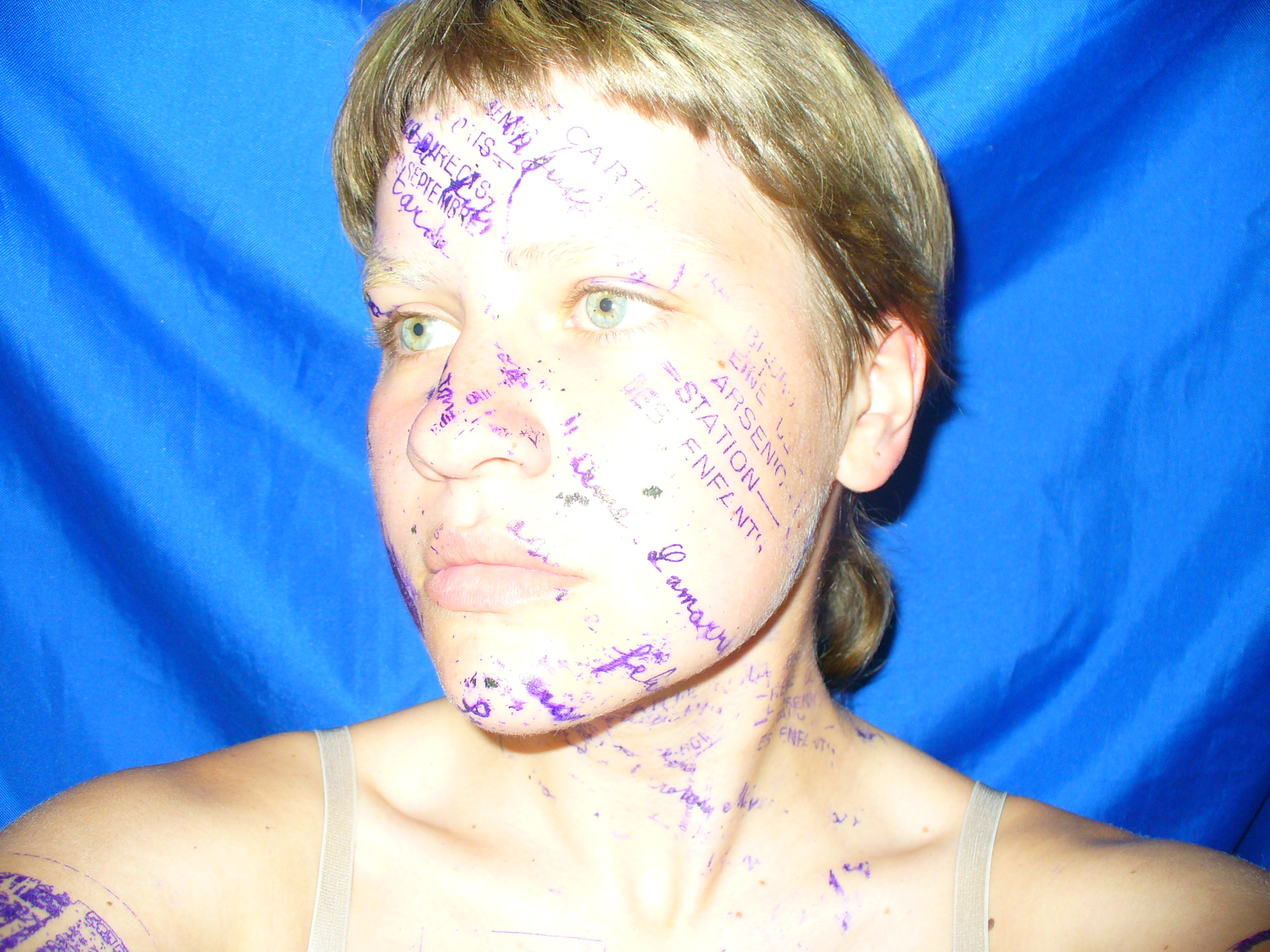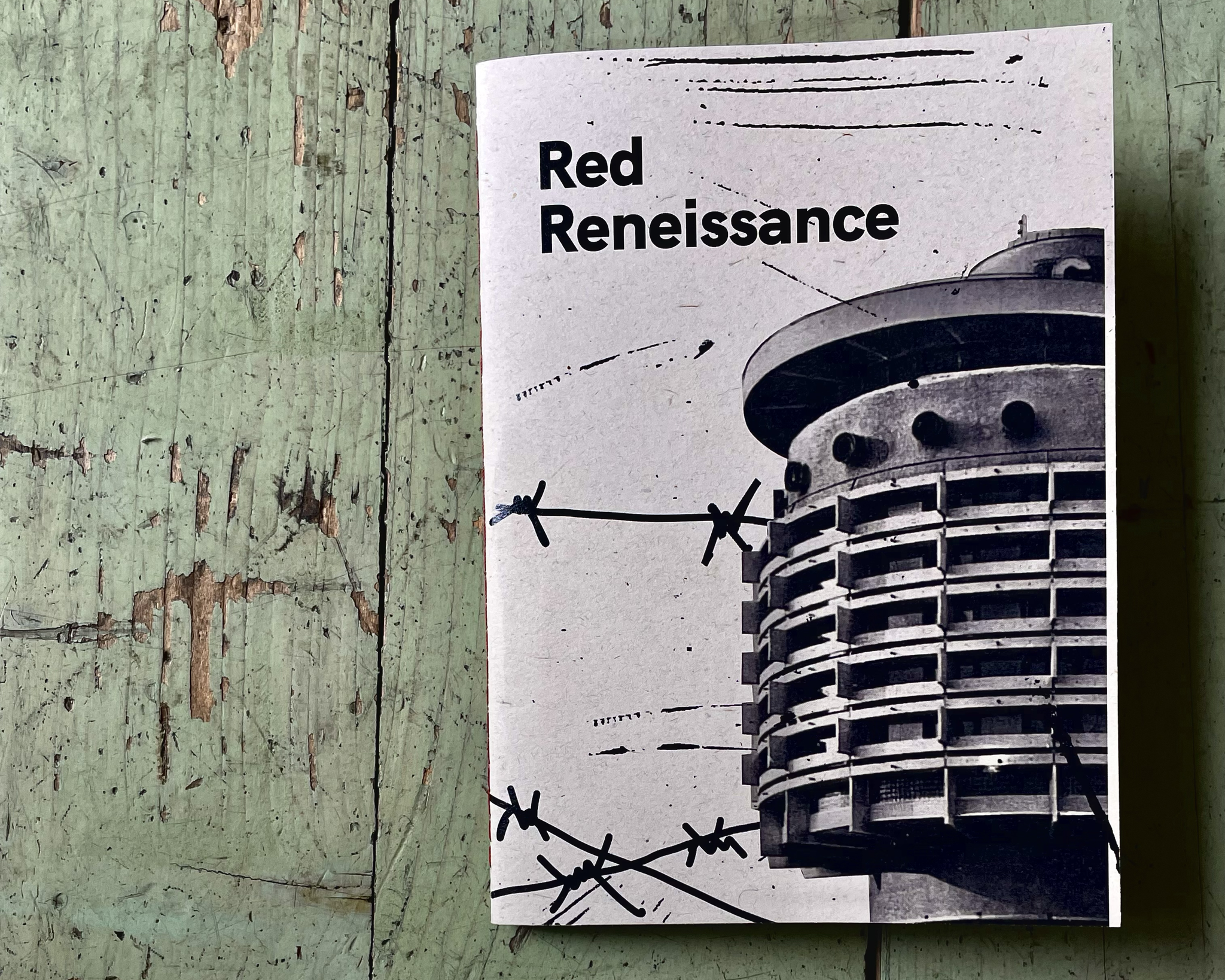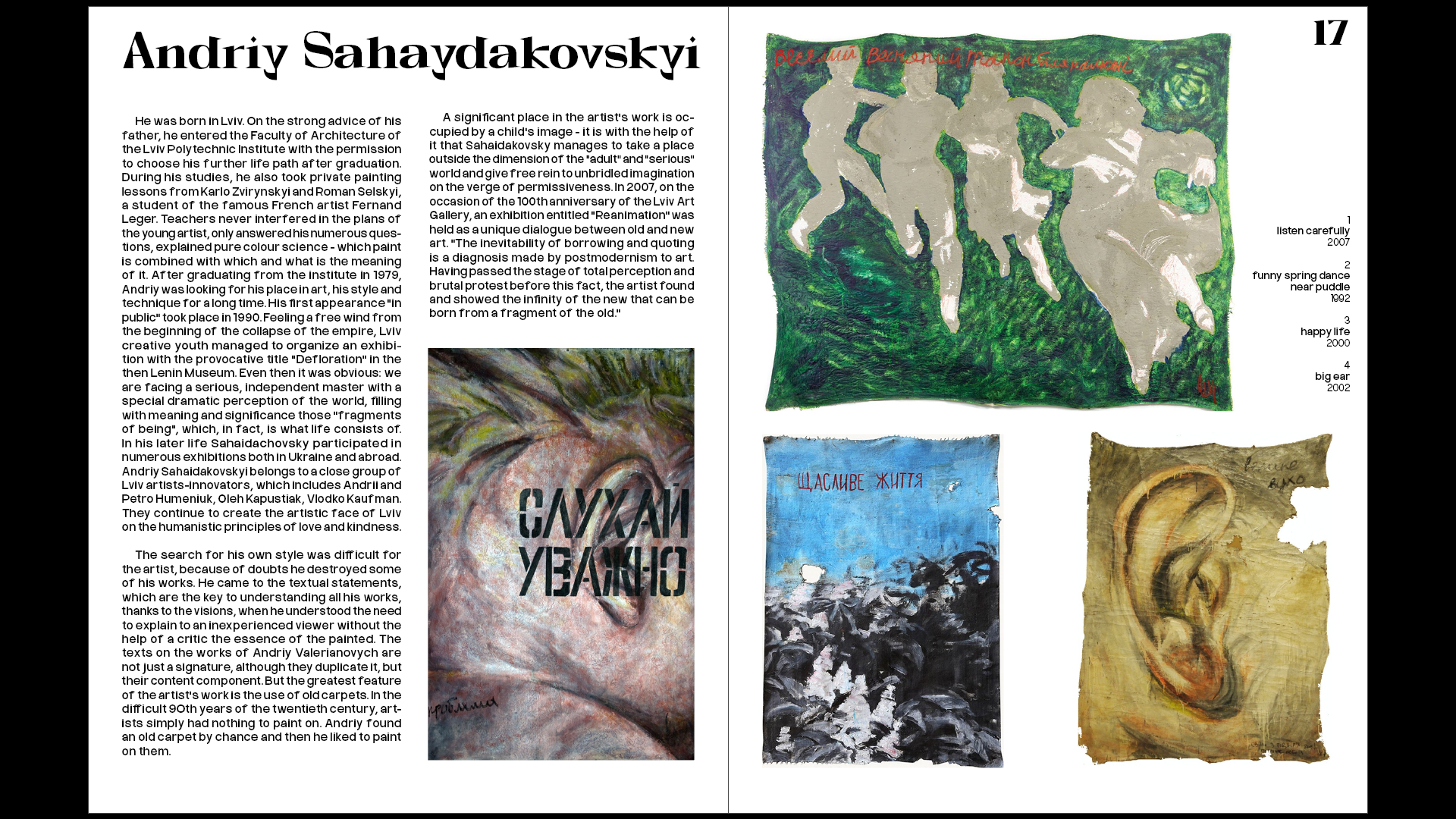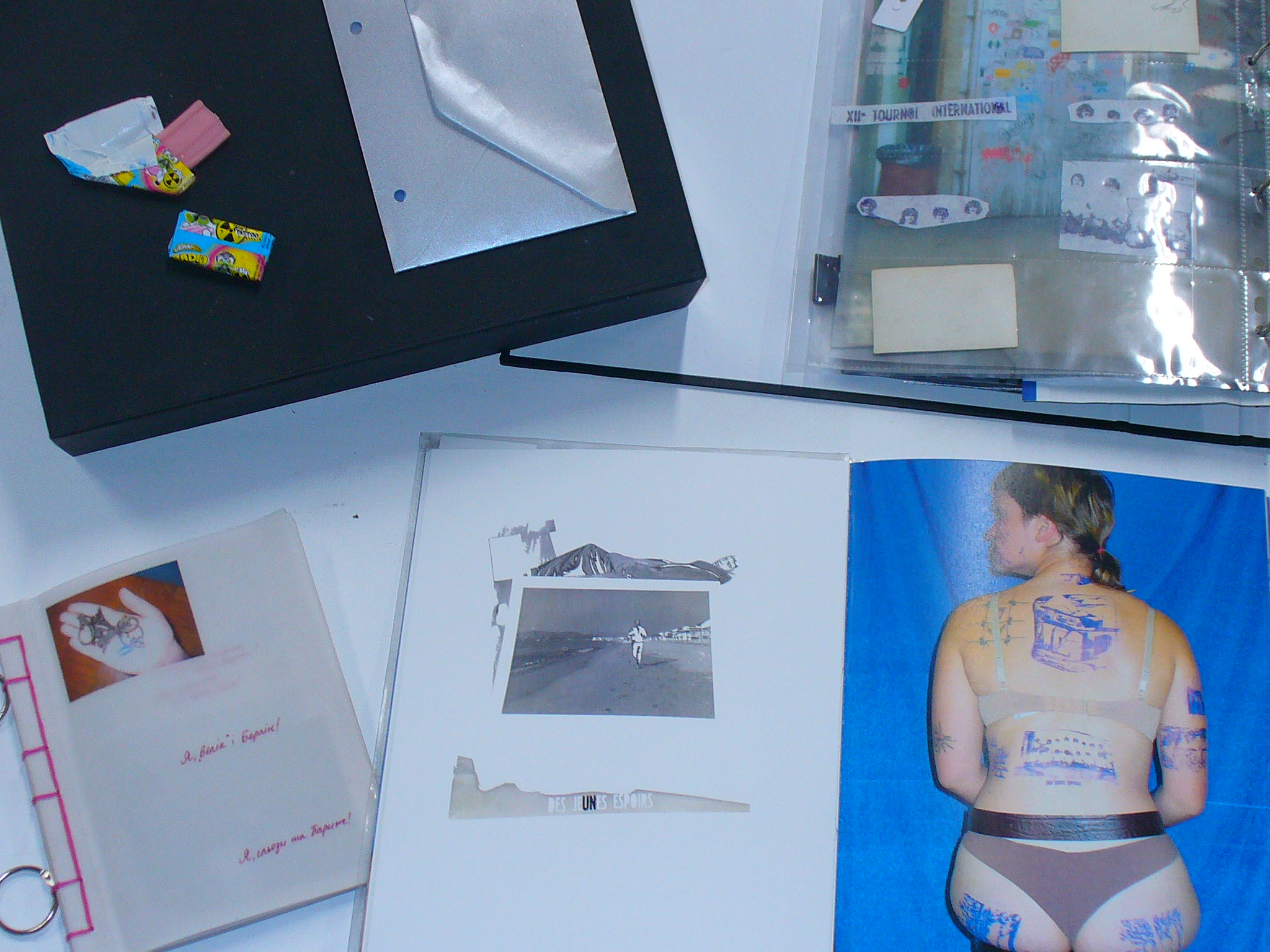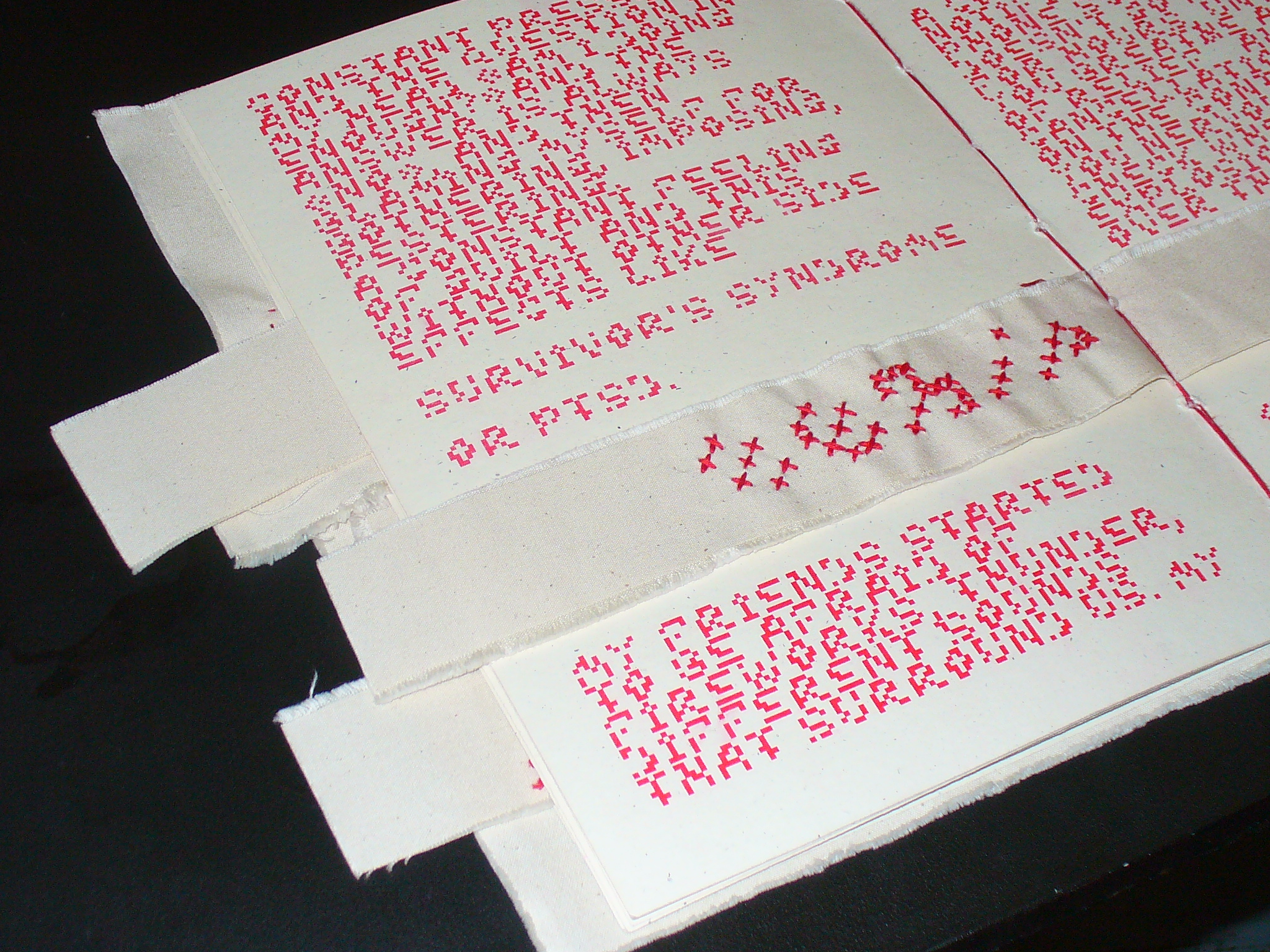Anya Ivakhno / Анна Івахно (2003) was born in Zaporizhzhia in the southeast of Ukraine. She later moved with her family to Kyiv, where she’s been studying a bachelor’s degree in Graphic Design at Kyiv National University of Technologies and Design. She arrived in the Czech Republic at the beginning of the Russian invasion, and she’s been studying at UMPRUM since April 2022. Currently, she’s at the Studio of Type Design and Typography.
In her work, she typically combines traditional art forms such as drawing, painting or textile art with graphic design and digital illustration. In the project “where are you from?” in 2024, she connects the imagery of a cross-stitch embroidery with the author's original pixel font. She has also been exploring and charting the history of her own country in her work, the pioneers of independent Ukrainian art in particular. In her book Na Mezhi / New Wave, she presents independent and often provocative Ukrainian art movements of the 1980s and 1990s, which broke free from the grip of Soviet art. In Red Renaissance, she commemorates Ukrainian writers of the 1930s who were developing Europe-oriented independent art of a free Ukraine, a new class of intelligentsia whose lives were forcibly terminated within a decade.
MONIKA DRLÍKOVÁ’S INTERVIEW WITH ANYA IVAKHNO,
CONDUCTED VIA EMAIL, AUGUST 2024
Monika Drlíková: Where exactly are you from? What is happening in your hometown right now? Is your family with you in Prague? Under what circumstances did you come to Prague and why did you choose UMPRUM?
Anya Ivakhno: I come from Zaporizhzhia, a city in the southeast of Ukraine. I spent half of my life there, then my family moved to Kyiv. My hometown is now under massive shelling, because it’s close to the frontline. Almost all my friends’ parents continue to live in Zaporizhzhia, because they refuse to throw away their entire lives, move out and start anew somewhere else. But there are other cases, such as my grandmother, who has been living with my parents in Kyiv for about three years. Or my other grandmother, who can’t move out because she suffers from dementia and can only live in her specially equipped apartment. I don’t know how else to describe the situation in my native city other than to simply say: “There’s war.” There’s also a nuclear power plant in Zaporizhzhia, which is being occupied by Russian troops, and as a result of that, the local population lives in constant fear.
I live alone in Prague, while my family is still in Kyiv. My father can’t and won’t leave the country and my mother will never leave her husband. My sister initially left with me in March 2022 and stayed for the first month. Then she returned to Kyiv, because she couldn’t imagine living anywhere else. I came to Prague to study. At the beginning of the invasion, no one really knew how long it would take for the education system to be restored. So I started looking for a university in Europe.
I chose UMPRUM, because I felt they wanted to help, while other universities either ignored my letters or couldn’t tell whether I could even study there or couldn’t help me with accommodation, and so on.
MD: How do you feel about UMPRUM and your studio? Why did you choose this studio in particular?
AI: I am really happy at the Studio of Type Design and Typography, because they really take interest in the students whose primary language is neither Czech nor English. It’s important for them to find mutual understanding, which contributes to the sense we’re a full-fledged part of the studio. The heads of our studio keep reminding me how important it is to speak English and translate, because they want to understand me and my work. I’m very grateful for that, because I know that it’s not like that in other studios.
I was originally at a different studio (first two terms) and one of the teachers directly told me that he did not find it his responsibility to try to make me feel good here. I often felt alienated and cut off from other students. No one could recognize that anyone could present a challenge for me in a new environment. So I’m really glad I found the strength to switch studios and work in a safe environment.
MD: Describe what you deal with in your artistic work, what are your thoughts in this context, what kind of approaches you employ in your projects. Feel free to elaborate.
AI: As all the other artists of Ukrainian descent, I find it hard not to think of war as the main subject of every new project, because it’s the only thing that makes sense and the only thing I want to speak and scream about. I’ve been shamed for talking about war and my identity in this context, because everyone’s perhaps tired of it or maybe they just don’t care anymore, but I just can’t do it any other way. There is nothing more important, nothing that stirs such strong emotions as the pain we experience every day because of the war. War is everywhere, in everyday details, in every notification on your phone, in all of your communication. And it’s worth thinking about it and living through it. It’s important. I also feel it’s my responsibility to inform people about what’s happened and is happening. I actually feel like a soldier on the information front. I can’t muster the energy to think about nothing other than war.
MD: Do you feel you need to become socially and politically engaged in connection with Ukraine? If so, in what form?
AI: I believe it is important to have a strong political position and defend it. I notice how the war and everything around it is becoming less and less popular, less trendy in the European media and that makes me really sad. It’s worth talking about it. Who else will, if not us? We should not forget about what keeps happening every day and how many lives Russia continues to take from Ukraine.
It’s also important to attend protests and demonstrations in support of Ukraine in all European countries to remind ourselves that the war isn’t over. Many of the demonstrations arise in response to the current massive shelling and destruction of Ukraine. It is equally important to help set up fundraisers and organize events that could help raise funds for restoration. Moreover, it is important to talk about Ukraine in the context of the war, but also to promote its culture and acquaint others with its history. In fact, it’s important for me to engage in the social and political life of both Ukraine and the country I live in, that is, the Czech Republic.


